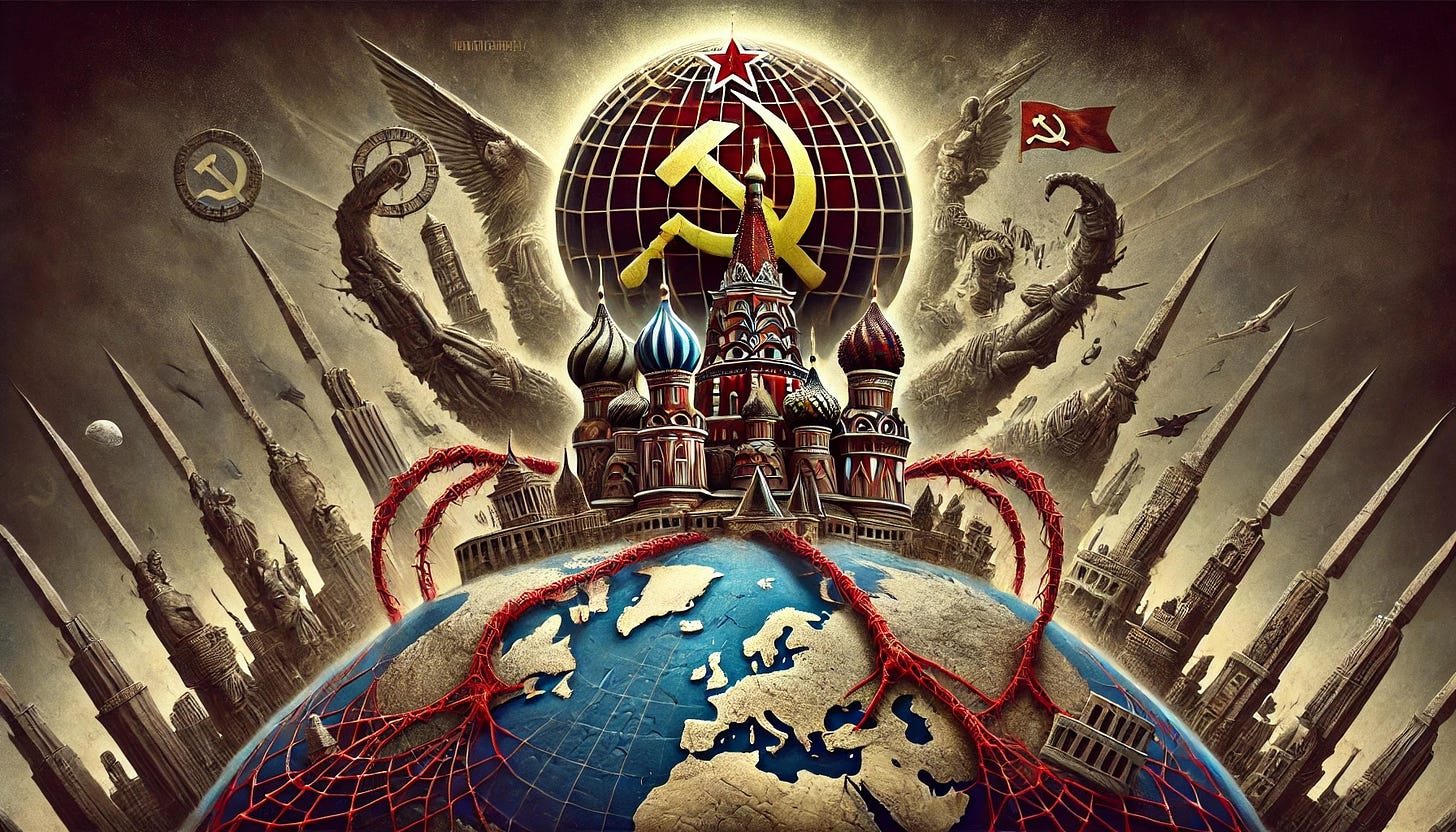The Third Rome in a Red Disguise: How Communism Justified Imperialism
Neo-Imperial Utopia of the Kremlin: How Communism Became a Tool of Soft Occupation and a Legacy of the 'Third Rome'
Communism is not just a utopian idea of equality promising freedom and prosperity for all. In the hands of Moscow, it became an ideological weapon with distinctly imperial aims, largely borrowed from the concept of the "Third Rome."
Like the "Third Rome," communism was built on a messianic mission to spread its influence worldwide and establish control over nations under the banner of the common good. Essentially, if Moscow once aimed to rise above the world of Orthodox serfs, under communism, it sought to rise above the world of proletarians.
Communism and Moscow's Imperial Mission
Since the Bolsheviks came to power in 1917, Moscow used communist ideology as a universal tool of expansion. Empires always require ideological justification for their conquests and wars, presenting them as serving an undoubtedly noble cause. And communism was perfectly suited for this purpose:
The universality of communism. Unlike limited nationalist ideas, communism offered the unification of all classes, races, religions, and genders under a single banner. This allowed Moscow to promote the idea of a "world revolution," where everyone, regardless of origin, could be part of a grand neo-imperial project.
Fighting nationalism as a threat to empire. For any empire, the main enemy is nationalism, as it undermines the unity of conquered territories. Communism suppressed national movements, replacing them with "proletarian internationalism," which effectively subordinated national interests to those of Moscow. For example, Ukrainian nationalism in the 1920s-1930s was brutally crushed under the pretext of combating the "bourgeois element," resulting in mass famine and repression.
Soft occupation through Russification. Communism provided Moscow with legitimacy for the Russification of conquered peoples. The Russian language became the "language of socialism," which all Soviet peoples were required to speak. This was a form of soft occupation: Russian culture and language dominated schools, universities, and state institutions, displacing local national languages and ancient traditions.
Economic justification for expansion. Under the slogans of collectivization and industrialization, Moscow effectively exploited the resources of the national republics. Central Asia, for example, was turned into a resource appendage, supplying cotton and agricultural products for the needs of the center while receiving minimal investment for its development.
Utopia vs. Utopia: Communism and the 'Third Rome'
The concept of the "Third Rome" claimed that Moscow was the center of the Orthodox world, destined to save Christianity after the fall of Rome and Constantinople. Communism, despite its anti-religious nature, inherited much of this idea. The difference was that instead of religion, the core of the utopia became "scientific socialism" and the idea of class struggle.
Global mission. Both the "Third Rome" and communism asserted that Moscow had a duty to carry the "light of truth" to other nations. In the case of the "Third Rome," this was Orthodox faith, and in the case of communism, it was socialist revolution. It is no coincidence that the USSR actively supported communist parties around the world, from Latin America to Asia and Africa.
An external enemy. Empires always need an external enemy to justify their expansion. For the "Third Rome," it was Catholics and Muslims; for the USSR, it was capitalism and the West. This dichotomy helped Moscow maintain internal stability, justifying repression and militarization.
Utopian rhetoric. Both projects promised to build an ideal world: the "Third Rome" through Orthodox justice, communism through social equality. However, in reality, both utopias served as a cover for territorial expansion and the concentration of power in the hands of the central authority.
Examples of Imperial Logic Under the Guise of the Common Good
Collectivization as a tool of control. Officially, collectivization was carried out to eliminate poverty and increase agricultural productivity. However, in practice, it became a means of economically subjugating peasants and repressing those who resisted centralized authority. The Holodomor in Ukraine, Kazakhstan, and the North Caucasus were direct consequences of this imperial approach.
Sovietization of Eastern Europe. After World War II, the USSR established control over Eastern European countries under the pretext of protecting them from "fascism" and "bourgeois influence." In reality, this was typical imperial expansion, with puppet communist regimes installed under the guise of assistance.
Support for national liberation movements. Moscow actively supported revolutions in Third World countries, providing weapons and economic aid. However, this was not an act of altruism. In return, the USSR gained access to resources and established its political influence, as in Angola or Vietnam.
From Utopia to Geopolitics
In Moscow's hands, communism turned from a utopian idea of building paradise on Earth into a powerful imperial weapon. Its universality allowed the USSR to expand its influence under the guise of "liberating" nations from capitalist oppression. But, like the "Third Rome," the communist utopia proved to be a myth, serving as a cover for geopolitical ambitions and the self-serving interests of the Kremlin's rulers.
Today’s Russia, despite its change in rhetoric—now referring to the “Russian world” or a “multipolar world”—continues to employ many of the same methods of influence, from political propaganda to economic control. This once again demonstrates that its actions are not driven by ideological principles but by a pragmatic imperial predator logic that merely adapts its guise according to location and era.



